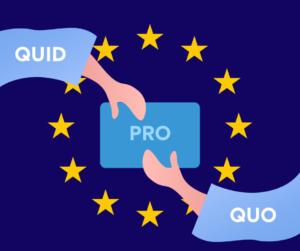Headquarters: Svetog Nauma 7, 11000
Office address: Đorđa Vajferta 13, 11000
Phone:: +381 11 4529 323

The European Union is currently in a historic turmoil, torn between crisis and new geopolitical challenges. Enlargement fatigue threatens to grow into a kind of a long-term stalemate, further slowing or factual abandonment of expansion. Even though the leaders of the 27 member States at the celebration of 60 years of the EU, the Treaty of Rome (25 March 2017) pointed out that the Union’s doors will remain “open to those who want to join later”, the attention of the EU in future will primarily be focused on issues such as elections in some member States, opening negotiations on Brexit, and internal reform of the EU. The policy towards the Western Balkans (WB) is likely to be based on the principle of business as usual.
The migrant crisis and participation in international peacekeeping missions have shown that the WB countries are able to play a constructive role and uphold the EU values. However, further neglect of the WB with regard to of the increasing regional tensions and new geopolitical challenges could increase instability and further weaken the project of European integration, which would mean losing influence of the EU as a transformative “soft” power. EU’s enlargement policy has for decades been one of the most successful policies of the Union. However, the policy of “continuing as before” is increasingly demonstrating its limitations. The relative stability of the WB region is not something that has been given for granted but is rather closely connected with the process of European integration. Former EU’s most successful policy is more and more today becoming hostage to populist critics and unforeseen political developments in the individual EU member States or in their neighbourhood.
If we hypothetically consider five different alternatives to the enlargement process similar to the method that the Commission, applied in the “White Paper” on the future of the EU (1 March 2017) – we could for instance, propose the following scenarios: (1) business as usual (2) negotiations in a “Turkish way” (i.e. without the end), (3) updated, enhanced and accelerated process of enlargement (4) flexible sectoral accession, and (5) accession in stages (step by step).
The least favourable scenario for candidate countries would undoubtedly be the one during which the current process, mentioned under section 1, would by time turn into the scenario no. 2 (the negotiations without end). On the other hand, the best option for candidates would be the option 3, on updating and accelerating the enlargement process based on reinforced elements of the Thessaloniki Agenda and the Berlin process The aim would be to open EU accession negotiations for the whole WB region, and in the same time to complete negotiations for the “most advanced” countries by the end of this decade (i.e. Serbia and Montenegro). However, there is no sign of willingness of EU members to accept this scenario, for the time being.
Therefore, as an alternative, we could speculate about the evolution of enlargement policy in the context of future restructuring of the European Union. Under the assumption that the EU would be organised in a number of concentric circles, the enlargement process could become a particular institutional circle. Such “flexible” or gradual enlargement process could be imagined in various forms (i.e. by sectors or in stages) in the framework of a renewed version of Associate Membership that would, among other, allow associate States to be part of EU institutional structures. The advantage of the “New” Associate Membership status would be that it could be achieved in a shorter period, allowing the population and political elite of the WB candidate countries to see the concrete progress in accession process. From the perspective of the current EU members, accession in stages could smooth the admission of new member States seen from the prospective of the public, which will be gradually become accustomed to the process including the new member States. Such a New Associate Membership status would be only a temporary one – it would last up to the moment when the associated countries have fulfilled all the conditions for the full adoption of the acquis of the EU, which would then transform them into a position of fully fledged Members.
Variations of the topics mentioned above would be only possible if the European Union overcomes its traditional view on the membership status that rules out the possibility of partial or associate participation/membership in the major institutions of the Union, such as the Council, the European Parliament, the EU Court, European Commission and their working bodies or agencies.